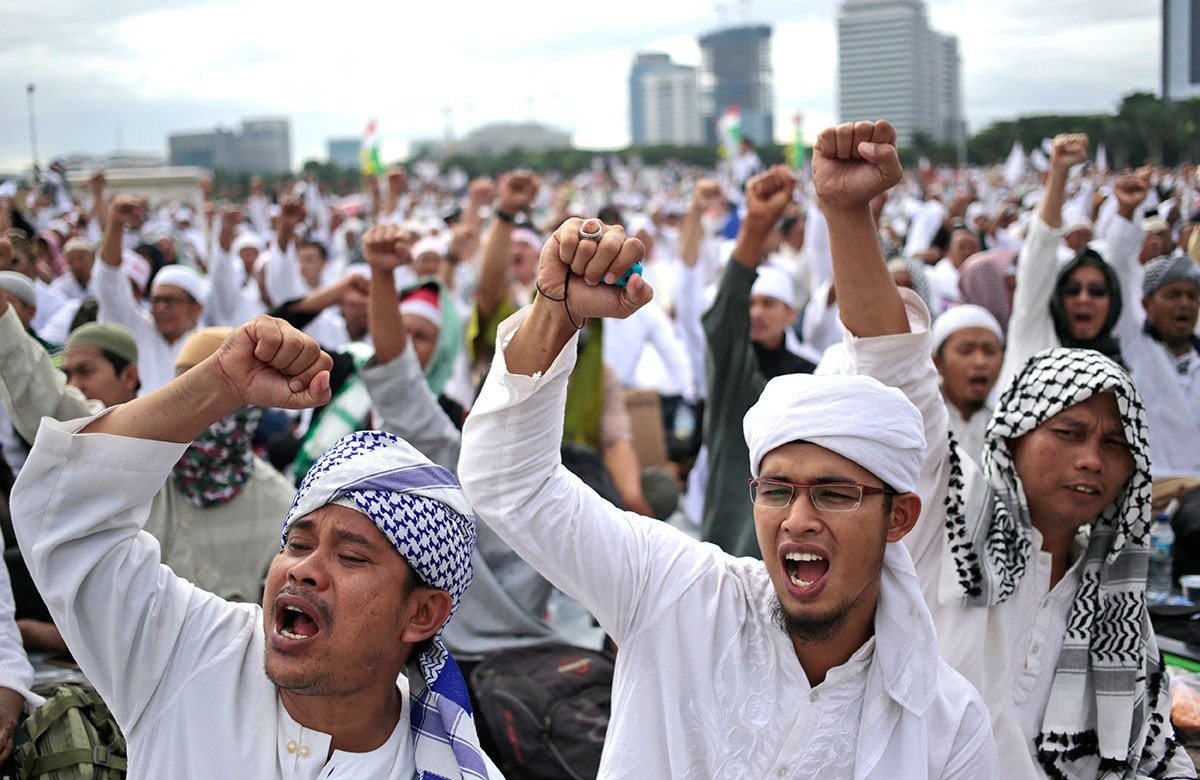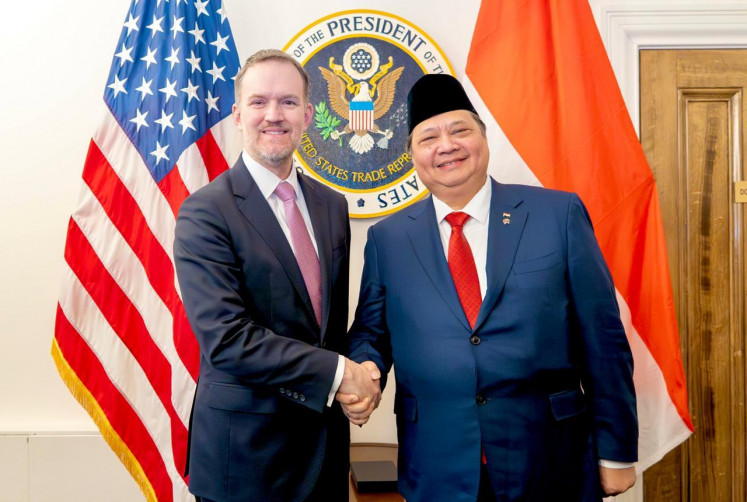Popular Reads
Top Results
Can't find what you're looking for?
View all search resultsPopular Reads
Top Results
Can't find what you're looking for?
View all search resultsRegulating religious intolerance
According to data from the National Violence Monitoring System (NVMS), there has been a constant upward trend of inter and intra-religious conflict, starting as far back as 2004 (four cases in 2004, 27 in 2008, 101 in 2011 and 257 in 2014), most of which involved Muslims.
Change text size
Gift Premium Articles
to Anyone
T
here is no doubt that Indonesia’s Muslim leanings have shifted to a more intolerant state from where they were 10 years ago. One needs only to see the recent turmoil to understand the gravity of this shift: the explicit acceptance of the Islam Defenders Front (FPI), the massive turnout at the divisive 4/11 and 2/12 rallies last year and the support by many for FPI leader Rizieq Shihab’s aggressive and demeaning description of Christians is a small sample of many indications.
But one needs to understand that this is not a big-bang phenomenon. Indonesia’s growing intolerance has been brewing for longer than one would want to recognize. We may recount that in 2008, the FPI burned down houses of Ahmadiyah followers, in 2009, the Bekasi government closed the HKBP Filadelfia church, in 2010, the Bogor government defied the Supreme Court’s decision to allow the establishment of the GKI Yasmin church and in 2012 Shia Muslims in Sampang, Madura, were relocated by force.
According to data from the National Violence Monitoring System (NVMS), there has been a constant upward trend of interand intra-religious conflict, starting as far back as 2004 (four cases in 2004, 27 in 2008, 101 in 2011 and 257 in 2014), most of which involved Muslims.
Undoubtedly, the politicization of divisive religious sentiment by opportunistic politicians and the lack of interfaith dialogue have significantly contributed to this shift. However, one needs to understand that such variables are only agent-variables incentivized to increase intolerance by a permissive system; and it is this system that lacks public scrutiny.
A key component of the system that bears responsibility for engineering a suitable climate for the fermentation of religious intolerance is the obsolete Blasphemy Law No. 1 of 1965, as well as Article 156a of the Criminal Code.
This Blasphemy Law is at the center of Indonesia’s rising religious intolerance, as it is a primary cog that has habituated a sense of intolerant religious entitlement. The core problem of this law lies in the fact that blasphemy has never been clearly defined.
In theory, the law allows anyone to criminalize others for anything he or she subjectively perceives as blasphemous based on his or her religion. In practice, courts will refer to prominent religious bodies like the Indonesian Ulema Council (MUI), which are supposed to be less subjective and fairer but turn out to lack public trust, hold the monopoly over Islamic interpretations and are biased toward the majority.
It is no wonder that at least 49 of the 73 blasphemy cases heard in courts since 1968 concerned sects and critical assessments of religion that have no intention to be blasphemous.
As a result of this vagueness, the socio-religious culture that is bred is a culture of subjective imposition giving majority religions the right to impose their will according to what they subjectively believe is right and prosecute what they subjectively believe is wrong. Discussions on whether or not such rights exist and how far they extend are subverted due to the fact that the existence and vagueness of the Blasphemy Law in effect already implies that such rights do exist and that their extent is endless. Though an important discussion on this matter did occur and was left open with the decision of the law’s judicial review in 2010 (the Constitutional Court voted to preserve the law but commented that “changes” needed to be made), nobody followed through.
It is this culture of rightful subjective imposition that, through the massive mobilization and politicization accompanying these trials, has been pervasively internalized and left unchecked within Indonesian religious cleavages. We should not forget that such mobilization and politicization has occurred frequently in these trials for a long time, be it regionally (i.e. mobilization by hard-line group FUI and politicization by Noer Tjahja in the Shia Sampang case) or nationally (i.e. mobilization by the FPI and the MUI along with the politicization by key politicians in the case of suspended Jakarta Governor Basuki “Ahok” Tjahaja Purnama).
As a result, religious communities are habituated to feel entitled over the absolution of their religious right; that there is no need for moderation and limitation. What this manifests in is the intolerant state of religion we see today: Mere commentary and criticism of alleged abuse of religious teachings is labeled as blasphemous and thus responded to by angry mobs. Such commentary or acts are not moderated to respect others.
To solve the problem of Indonesia’s intolerance we need to depoliticize religious sentiment and further discuss how religion should fit into Indonesia’s democracy, but before any of that can happen we need to scrutinize the permissive system that fuels a socio-religious culture that justifies these problems to begin with.
We need to take a hard look at our Blasphemy Law and discuss whether, as a society, we want to have a law that allows the imposition of a majority’s subjective religious right at the expense of others’ basic rights with little or no limitation, and a society whose culture of rightful subjective imposition is unchallenged and unmoderated. Hopefully, the answer is no.
---------------
We are looking for information, opinions, and in-depth analysis from experts or scholars in a variety of fields. We choose articles based on facts or opinions about general news, as well as quality analysis and commentary about Indonesia or international events. Send your piece to community@jakpost.com. For more information click here.










